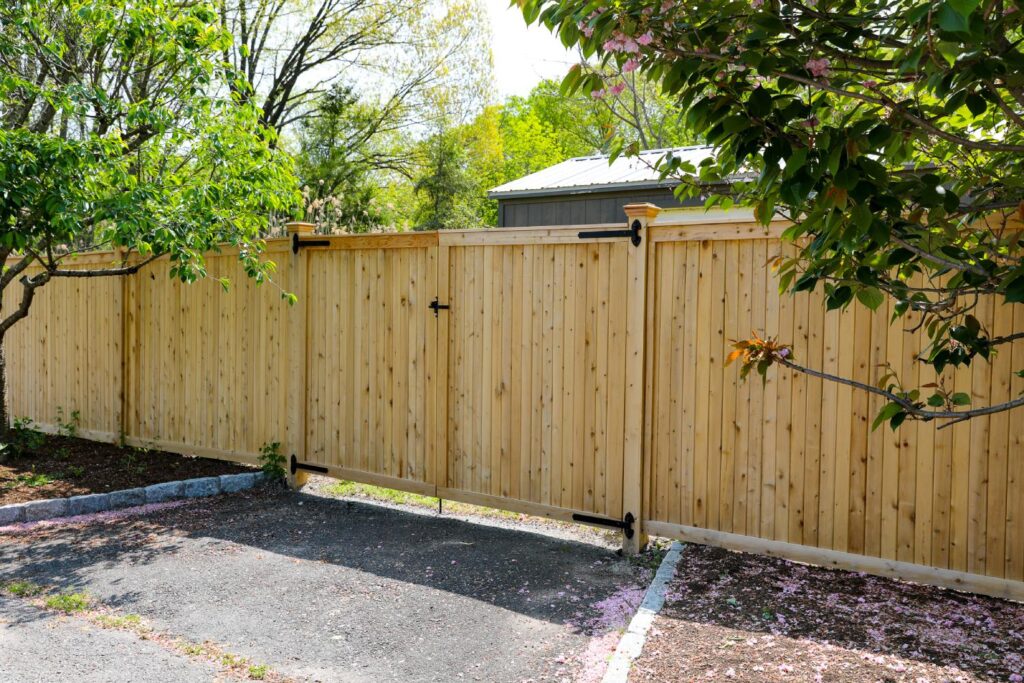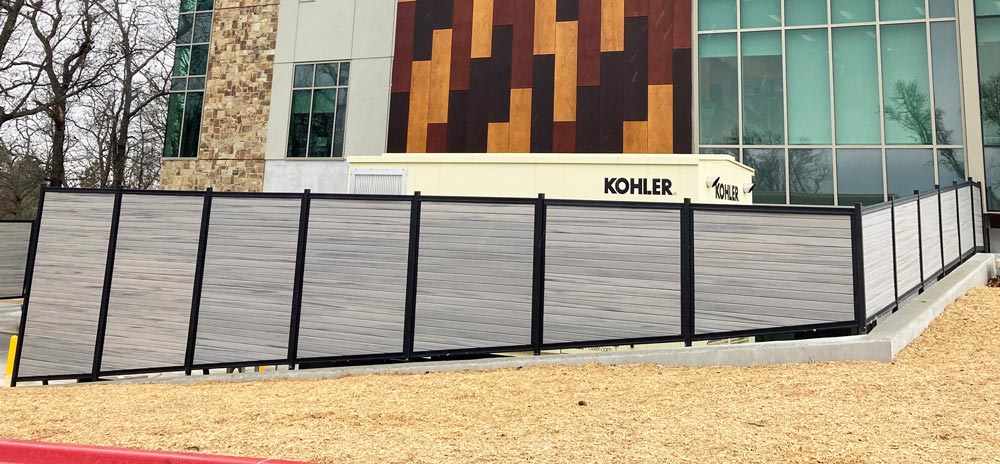All Categories
Featured
When you choose to install a fencing around your property, it's necessary to comprehend the authorization requirements specific to your area. While mounting a fencing can appear like an easy home renovation job, neighborhood laws and guidelines have to be complied with to guarantee the installation is lawful and compliant. Failing to secure the appropriate permits could lead to fines and even need you to get rid of the fencing. Here's an extensive take a look at the licenses you may need for fencing setup.
Why Do You Need a Permit for Fence Installment? A fence is greater than simply a barrier in between buildings-- it can affect security, residential or commercial property value, appearances, and even ecological problems. City governments call for authorizations to make certain that fences fulfill specific requirements and do not create troubles for energies, next-door neighbors, or the community as a whole. Authorizations additionally guarantee that the setup abides by zoning legislations, building codes, and security guidelines.
![]()
Kinds Of Authorizations You May Need. Structure Authorization. A structure license is one of the most usual licenses needed for fence installation. This permit makes certain that the fence satisfies regional building regulations. If you're developing a fencing over a certain elevation (usually over 6 feet), you'll likely need a building license. The neighborhood structure division will typically evaluate the site and review plans to make certain the structure is stable and does not obstruct public areas or develop dangers.
Zoning Permit. A zoning authorization guarantees your fence complies with obstacle, elevation, and location guidelines. Fencings may need to be set back a specific distance from pathways, roads, or residential property lines to protect against blockage or disturbance with energies.
HOA Authorization. If your residential property becomes part of a property owners association (HOA), you might require to look for approval prior to setting up a fence. HOAs usually have guidelines that regulate the aesthetics and structure of fences to guarantee they agree with the neighborhood. You may require to send your prepare for approval, and the HOA may restrict fencing elevation, product, or style.
Specialty Permits. In some locations, there might be additional licenses needed for certain circumstances. If your fencing is near a secured ecological area or situated in a flooding zone, you might require to acquire specialty licenses associated to environmental impact. Similarly, if the fence remains in a location with below ground energies, you may require to acquire clearance to avoid damaging pipes or cables.
![]()
Easement or Utility Firm Permission. Prior to mounting a fence, it's vital to check whether the property consists of an easement, such as an energy easement, which could affect where you can position your fence. Easements are areas of land marked for personal or public utilities, and you might require consent from the energy firm or various other authority to build within this area.
Exactly How to Learn What Permits You Required. To guarantee that you're adhering to all the essential laws, below's just how you can figure out the specific licenses needed for your fence installment:
![]()
Check Out Your Local Federal Government Office: The initial step is to get in touch with your local building or zoning department. Numerous cities and areas have guidelines offered online that define what kinds of licenses are required for fencing setup. Otherwise, visiting the office or calling face to face can aid clear up the process. Examine Your City's Website: Numerous districts supply details about fencing setups and the licenses needed with their main sites. Some websites also permit you to send applications on the internet. Speak With a Fencing Installment Specialist: If you're not exactly sure regarding regional guidelines, an expert fencing service provider can help. They know with the permitting procedure and can assist you with the actions. The Consequences of Not Getting a Permit. Stopping working to secure the needed permits prior to setting up a fencing can cause significant effects. You may be fined or called for to remove the fence entirely. Furthermore, if you choose to market your property in the future, the lack of a license could deter possible purchasers, as they may see it as an indication that the property is not certified with local regulations. Making certain that you have the correct licenses will conserve you time, cash, and frustrations in the long run.
Verdict. Installing a fencing around your house can add both protection and visual charm, yet it is very important to guarantee you're following the lawful steps in the procedure. Looking into the details license demands for your area, consisting of structure licenses, zoning laws, HOA approval, and energy approvals, will certainly assist ensure your fence setup goes efficiently. Taking the time to comprehend these needs currently can conserve you from costly mistakes and potential lawful concerns down the line.
Why Do You Need a Permit for Fence Installment? A fence is greater than simply a barrier in between buildings-- it can affect security, residential or commercial property value, appearances, and even ecological problems. City governments call for authorizations to make certain that fences fulfill specific requirements and do not create troubles for energies, next-door neighbors, or the community as a whole. Authorizations additionally guarantee that the setup abides by zoning legislations, building codes, and security guidelines.

Kinds Of Authorizations You May Need. Structure Authorization. A structure license is one of the most usual licenses needed for fence installation. This permit makes certain that the fence satisfies regional building regulations. If you're developing a fencing over a certain elevation (usually over 6 feet), you'll likely need a building license. The neighborhood structure division will typically evaluate the site and review plans to make certain the structure is stable and does not obstruct public areas or develop dangers.
Zoning Permit. A zoning authorization guarantees your fence complies with obstacle, elevation, and location guidelines. Fencings may need to be set back a specific distance from pathways, roads, or residential property lines to protect against blockage or disturbance with energies.
HOA Authorization. If your residential property becomes part of a property owners association (HOA), you might require to look for approval prior to setting up a fence. HOAs usually have guidelines that regulate the aesthetics and structure of fences to guarantee they agree with the neighborhood. You may require to send your prepare for approval, and the HOA may restrict fencing elevation, product, or style.
Specialty Permits. In some locations, there might be additional licenses needed for certain circumstances. If your fencing is near a secured ecological area or situated in a flooding zone, you might require to acquire specialty licenses associated to environmental impact. Similarly, if the fence remains in a location with below ground energies, you may require to acquire clearance to avoid damaging pipes or cables.

Easement or Utility Firm Permission. Prior to mounting a fence, it's vital to check whether the property consists of an easement, such as an energy easement, which could affect where you can position your fence. Easements are areas of land marked for personal or public utilities, and you might require consent from the energy firm or various other authority to build within this area.
Exactly How to Learn What Permits You Required. To guarantee that you're adhering to all the essential laws, below's just how you can figure out the specific licenses needed for your fence installment:

Check Out Your Local Federal Government Office: The initial step is to get in touch with your local building or zoning department. Numerous cities and areas have guidelines offered online that define what kinds of licenses are required for fencing setup. Otherwise, visiting the office or calling face to face can aid clear up the process. Examine Your City's Website: Numerous districts supply details about fencing setups and the licenses needed with their main sites. Some websites also permit you to send applications on the internet. Speak With a Fencing Installment Specialist: If you're not exactly sure regarding regional guidelines, an expert fencing service provider can help. They know with the permitting procedure and can assist you with the actions. The Consequences of Not Getting a Permit. Stopping working to secure the needed permits prior to setting up a fencing can cause significant effects. You may be fined or called for to remove the fence entirely. Furthermore, if you choose to market your property in the future, the lack of a license could deter possible purchasers, as they may see it as an indication that the property is not certified with local regulations. Making certain that you have the correct licenses will conserve you time, cash, and frustrations in the long run.
Verdict. Installing a fencing around your house can add both protection and visual charm, yet it is very important to guarantee you're following the lawful steps in the procedure. Looking into the details license demands for your area, consisting of structure licenses, zoning laws, HOA approval, and energy approvals, will certainly assist ensure your fence setup goes efficiently. Taking the time to comprehend these needs currently can conserve you from costly mistakes and potential lawful concerns down the line.
Latest Posts
Uncover Outstanding Car Repair Care from Montclare Auto Repair – Expert Care for Your Vehicle
Published Jun 01, 25
1 min read
Discover Special Auto Repair Specials in Chicago at Montclare Auto Repair
Published May 25, 25
1 min read
Unlock Your Financial Partner at WyHy – Financial Freedom for Your Success
Published May 24, 25
1 min read
More
Latest Posts
Uncover Outstanding Car Repair Care from Montclare Auto Repair – Expert Care for Your Vehicle
Published Jun 01, 25
1 min read
Discover Special Auto Repair Specials in Chicago at Montclare Auto Repair
Published May 25, 25
1 min read
Unlock Your Financial Partner at WyHy – Financial Freedom for Your Success
Published May 24, 25
1 min read